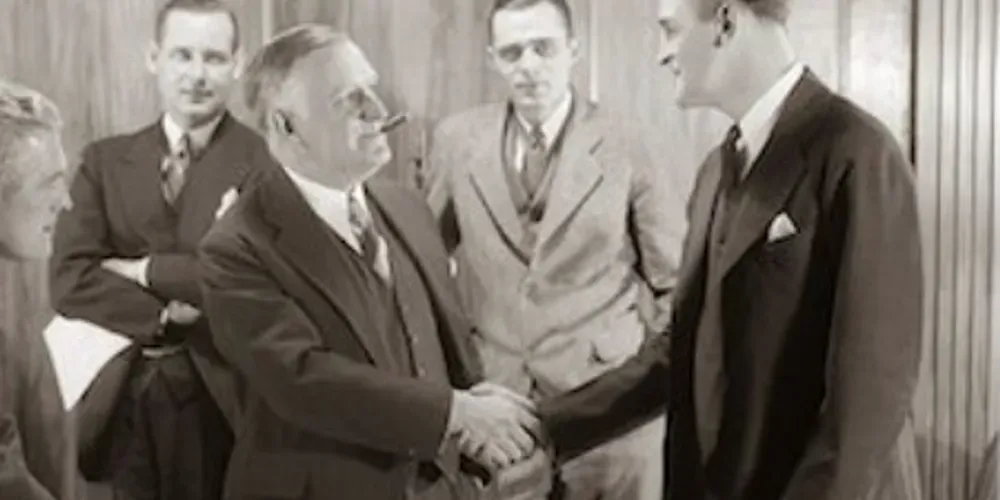blog

The effect of Positive Negotiation on your positivity and wellbeing
So often I speak to consultants about how they feel having gone through a negotiation with a client and they felt like they’ve been "done over" and in their words “hammered down” on fees, or they think they’ve done brilliantly because they got full fees and even though the client wasn’t happy they’ve decided to go with them anyway as they were desperate. I even heard the other day of a company securing a massive 30% (industry average is 15%) as the client was in such need of help.
Although I am referring to the recruitment industry in this instance it actually applies to any sales environment where negotiation between two parties occurs, in fact you could probably say that in some instances this occurs in your personal life too!
I had a situation with a client over 20 years ago who when I explained our fees they just turned around and said I’ll pay what I want as you are all like hotel rack rates, I will just find the best offer. Essentially expecting me to reduce my fees to the lowest possible level.
- when you read these scenarios how does it make you feel about each persons stance?
- How does the party who has come off worse feel?
Pretty poor I reckon… so does the salesperson even want the work or the client to deal with that salesperson after that experience!
Essentially everyone is starting from the wrong place and from the outset feeling like this is a game that they have to WIN or they LOSE!
I have read and heard a couple of great comments recently, one was in a book, the Matthew McConaughey autobiography in which he was watching two people who were in Africa and trying to get each others point across about all things, a "lady of the night" and whether it was appropriate. He sat there watching and was shown abruptly that “They are not trying to win arguments of right or wrong. They are trying to understand each other. That’s different. “ Matthew McConaughey I loved this statement in the book and it made me really think about the commercial environment and how this should so be applied to negotiation.
I have spent many years training on this topic and there are some very simple strategies and methods that can be used to ensure that firstly the deal is done… and secondly once the deal is agreed, all parties feel happy and have enjoyed the process. Negotiation is similar no matter the industry or sector and many issues can be the same.
1. Know your position before you start the conversation
Good negotiation starts with knowing what you want and putting it forth in conversation. This requires a substantial amount of preparation and asking the right questions at the start, rather than improvising responses in calls and emails. When you negotiate from a position of strong preparation, the other party will be more comfortable meeting you on good terms, based on your expertise and confidence.
2. Don’t go in too early!
The client needs to understand the value of your service, so your rates/fess need to be discussed once you've shown them how you're going to solve their issues. They need to understand you're worth your fee. In other words, if you say my fee is 17.5%”. The client asks for a discount. You immediately say “OK, 15%. You have just signalled to the client that you never believed in your value in the first place. You will struggle to ever get your fees back up.
3. Always justify your original position first……..
Negotiating before defending and justifying your standard terms will degrade your sell on our services, always commit to your standard terms first. This is not a price objection, but a value objection - summarize the value you are bringing to the table with your services.
The secret is to sell your point of difference. What have you got, and what do you do that gives your client extra value compared to your competitors. Talk about your entire process explaining all the things you do. For instance in recruitment it would be the searching, adverting, screening, networking, interviewing, reference checking, the “selling” of the client’s company and so on.
What would be the points of difference that you might convey in your industry and sector?
Most clients don’t perceive the value in what you do as they don’t know what you do to earn your fees. And they often don’t know what we do, because we don’t tell them!
4. Partnership negotiation is always the best policy
It is important that we build an ongoing business relationship with our clients. You need to act like you are in partnership with them (which you should be!) and you want to work with them to come to a result that is commercially viable for the both of you. There are many ways that you can structure a deal that is commercially viable for both parties.
A concession is something you are prepared to give in the place of a lower fees.
You've got to get something in return for your concession - a counter concession. Your client may only be interested in lowering your fee, but you should be interested in increasing your ability to be successful in helping them and in essence billing for your work.
5. Respect
Don’t turn your negotiations into an "us vs. them" scenario. Relating with them on a human level will strengthen your continued working relationship. It will also cement the expectation that no matter what happens in your work, you’ll always be on equal footing as people.
6. When it is time to walk away
Be willing to walk away from a negotiation if you think the options available are going to hurt you in the long term. Being willing to say no is important in contract negotiations, it is natural to try to avoid conflict is a something that potential clients may exploit.
It’s okay to say no.
Sometimes the client pushes hard for a reduced fee. Don’t feel pressurized. It’s a purely commercial decision — and it’s your decision to make. Is this client and this work so attractive it is worth taking a lower fee for?
Remember this before you discount next time. Don’t think of the fee only as dollars gained or lost —think of the fee as what your service is worth. A discounted fee means you devalue what you do every day — never forget that.
7. Never take things personally
If you can’t agree terms and you miss out on an opportunity and potential fee you must learn from what happened and move forward. Don’t let it stick with you for long and frustrate you as there are many more opportunities out there in the market. Analysing these failures can have a big impact on improving future negotiations.
Another comment I loved recently was at the RCSA Talent X conference where one of the speakers, Dom Price, from Atlassian made a great statement about how individuals when in group discussions should “Listen like you are wrong and speak like you are right”. I loved this as it still making sure you are holding your stance and position but are very open to understanding others.
There is nothing more frustrating than having a discussion or negotiation with someone who wont even listen or understand your point of view but just want you to listen to theirs!
So in essence, my Constructive Tip, if you prepare correctly, understand your worth, can convey that to the client and professionally negotiate knowing that it is not personal, be happy not to have the need to destroy your opposition to feel like you've won, be ok if the deal is not possible to agree, then I believe you can absolutely find yourselves in a position where positive negotiation can happen almost every time and everyone walks away feeling like they have made a successful agreement.





